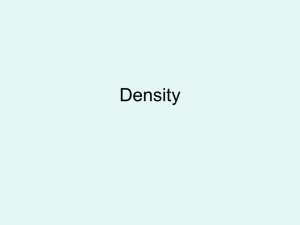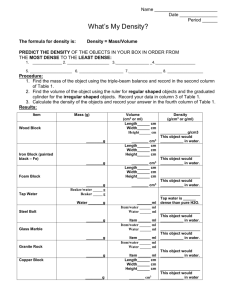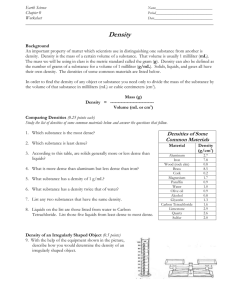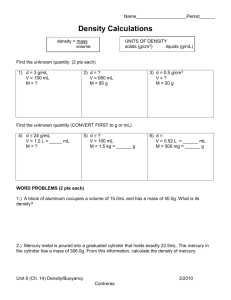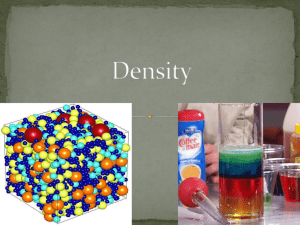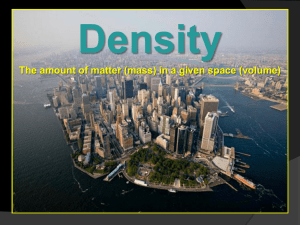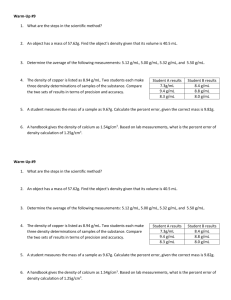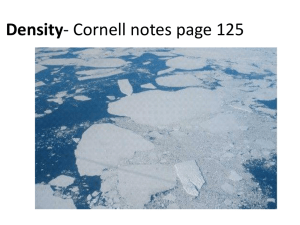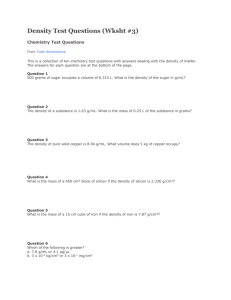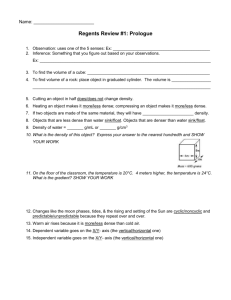ChemCom Notes – Density Density – The amount of matter (mass
advertisement
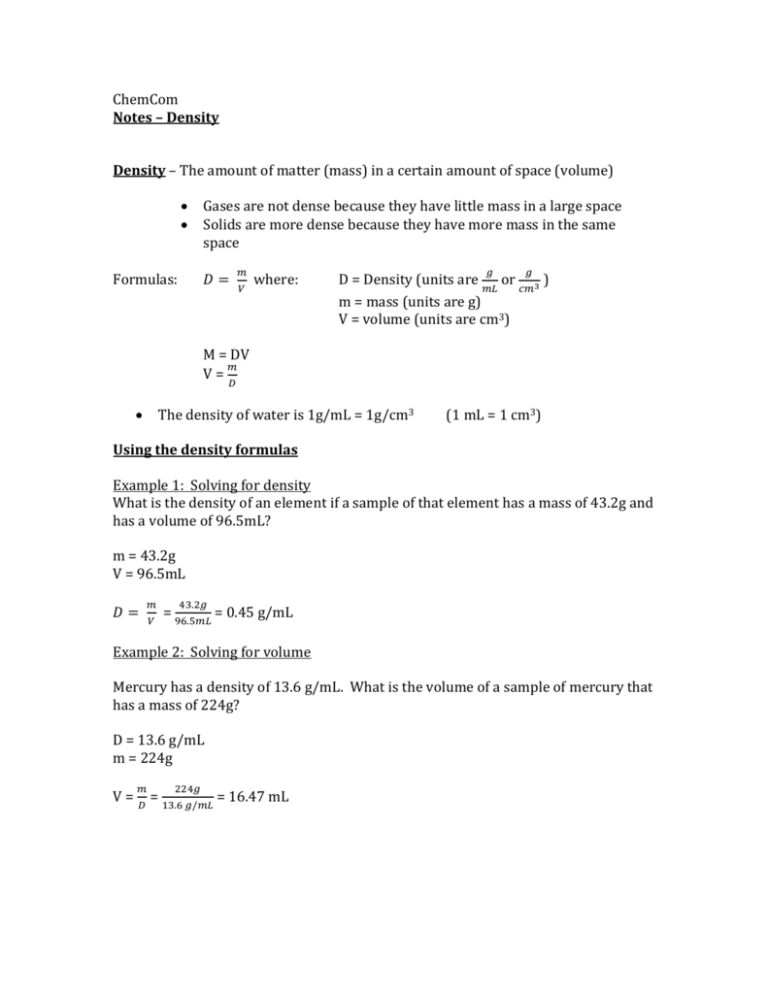
ChemCom Notes – Density Density – The amount of matter (mass) in a certain amount of space (volume) Formulas: Gases are not dense because they have little mass in a large space Solids are more dense because they have more mass in the same space 𝐷= 𝑚 𝑉 where: 𝑔 𝑔 D = Density (units are 𝑚𝐿 or 𝑐𝑚3 ) m = mass (units are g) V = volume (units are cm3) M = DV 𝑚 V= 𝐷 The density of water is 1g/mL = 1g/cm3 (1 mL = 1 cm3) Using the density formulas Example 1: Solving for density What is the density of an element if a sample of that element has a mass of 43.2g and has a volume of 96.5mL? m = 43.2g V = 96.5mL 𝐷= 𝑚 𝑉 43.2𝑔 = 96.5𝑚𝐿 = 0.45 g/mL Example 2: Solving for volume Mercury has a density of 13.6 g/mL. What is the volume of a sample of mercury that has a mass of 224g? D = 13.6 g/mL m = 224g 𝑚 224𝑔 V = 𝐷 = 13.6 𝑔/𝑚𝐿 = 16.47 mL Example 3: Solving for mass What is the mass of 84mL of a liquid if its density is 1.25g/mL? V = 84mL D = 1.25 g/mL m = DV = (84mL)(1.25g/mL) = 105g How can I apply density to other problems? Determining which substances are the same by understanding that the density of an object is constant so if two substances have the same density they are the same substance. Realizing that objects with a density less than 1g/mL float in water Realizing that objects with a density more than 1g/mL sink in water Understanding that if liquids don’t mix (like oil and water) that the less dense liquid will be on top of the more dense liquid Other things to remember: Density is an INTENSIVE property. This means that it doesn’t matter how much of a substance you have, its density does not change. Mass and volume are EXTENSIVE properties. This means that it changes when you change how much of a substance you have Look over your Explore Learning activities on density. They are meant to help explain density. How to calculate the density of a metal cylinder: o V = 𝑉 = 𝜋𝑟 2 ℎ = 𝜋𝑟𝑟ℎ = 𝜋 𝑡𝑖𝑚𝑒𝑠 𝑟 𝑡𝑖𝑚𝑒𝑠 𝑟 𝑡𝑖𝑚𝑒𝑠 ℎ r = radius h = height o You can obtain mass by measuring it on a balance o YOU WILL NEED TO DO THIS FOR THE QUIZ!

